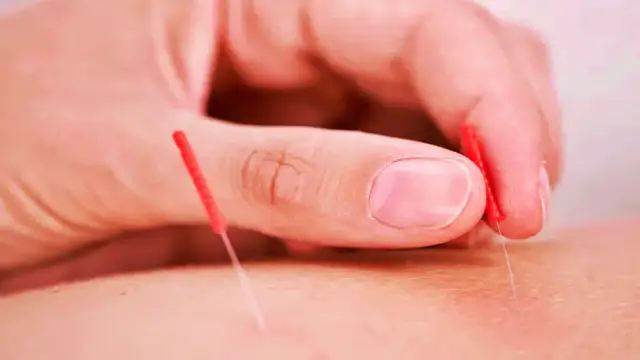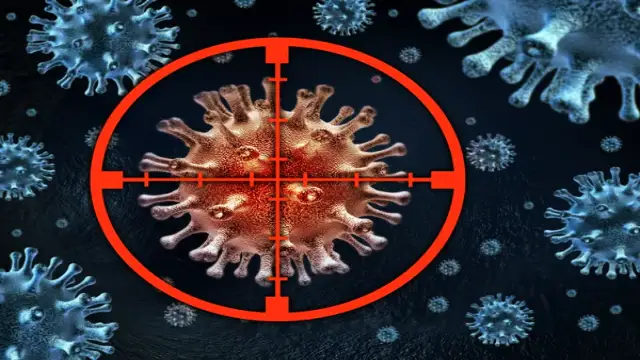How Does Acupuncture Work? A Personal Journey
Years ago, I was an engineer in Boston, overwhelmed by stress from a demanding project. A co-worker spoke highly of acupuncture, sparking my curiosity. I decided to try weekly treatments, hoping to find relief. To my surprise, I found the sessions incredibly relaxing.
Key Points
After each treatment, I felt a profound sense of contentment and awareness. It was hard to put into words, but I knew acupuncture was changing me. As an engineer, I craved a logical explanation for this transformation. How could inserting thin needles into my body for just twenty minutes create such a dramatic shift in my well-being?
The Fascination with Acupuncture
The more treatments I received, the more I felt the benefits. I became increasingly fascinated with acupuncture. However, when I asked my acupuncturist how it worked, I often received vague answers. He would mention balancing energy, but I wanted a deeper understanding. I felt frustrated, as if he was avoiding my questions.
Years later, while living in Santa Fe, New Mexico, I met a student studying acupuncture. Eager to learn, I asked her how a needle in one area could affect another part of the body. To my disappointment, she replied, “I don’t know.” This left me unsatisfied. How could someone studying acupuncture for two years not have an answer?
A New Perspective on Acupuncture
My curiosity led me to enroll at Southwest Acupuncture College in Santa Fe. The 3,000-hour program for a Master of Science in Oriental Medicine opened my eyes. I learned that I had been seeking a Western explanation for an Eastern practice. My questions stemmed from a desire for scientific clarity, but acupuncture is rooted in a different philosophy.
In the U.S., acupuncture education often emphasizes the Eastern perspective. While research is ongoing to understand acupuncture scientifically, the traditional explanations are deeply rooted in Chinese medicine. Studies have shown that acupuncture can trigger the release of endorphins and enkephalins, which help relieve pain. Other theories suggest that acupuncture blocks pain signals from reaching the brain.
Understanding Energy Flow
To truly grasp acupuncture, one must understand the concept of energy in Traditional Chinese Medicine (TCM). Acupuncture works by accessing and restoring balance to a patient’s energy, or Qi. This energy flows through the body along fourteen main pathways. When the flow is obstructed, it can lead to various health issues, including pain and reproductive disorders.
Blockages can arise from emotional stress, poor diet, unhealthy habits, or physical injuries. Acupuncturists use thin, sterile needles to stimulate specific points on the body, helping to restore the normal flow of energy. This process alleviates pain and treats various conditions.
The Benefits of Acupuncture
Acupuncture offers numerous benefits beyond pain relief. Here are some of the most notable advantages:
- Stress Reduction: Acupuncture can significantly lower stress levels, promoting relaxation and emotional well-being.
- Improved Sleep: Many patients report better sleep quality after treatments, helping to combat insomnia.
- Enhanced Digestion: Acupuncture can aid in digestive issues, improving overall gut health.
- Pain Management: It is effective for chronic pain conditions, such as arthritis and migraines.
- Boosted Immune System: Regular treatments can strengthen the immune system, helping to prevent illness.
FAQs
Most people find acupuncture to be a comfortable experience. The needles are very thin, and many report feeling relaxed during the session.
The number of sessions varies by individual and condition. Many people notice improvements after a few treatments, but ongoing sessions may be recommended for lasting results.
Yes, acupuncture is generally safe when performed by a licensed practitioner. The needles are sterile and disposable, minimizing the risk of infection.
Yes! Many studies suggest that acupuncture can help reduce symptoms of anxiety and depression, promoting emotional balance.
During your first appointment, the acupuncturist will conduct a thorough assessment, discussing your health history and concerns. They will then create a personalized treatment plan.
Acupuncture is a powerful tool for enhancing health and well-being. My journey from curiosity to understanding has shown me the profound effects of this ancient practice. While it may be challenging to explain acupuncture through a Western lens, embracing its Eastern philosophy reveals its true potential.
If you’re seeking relief from stress, pain, or other health issues, consider exploring acupuncture. It may just transform your life, as it did mine. Embrace the journey of healing and discover the balance that acupuncture can bring to your life.
The Importance of Finding a Qualified Practitioner
When considering acupuncture, it’s crucial to find a qualified practitioner. Look for someone who is licensed and has completed an accredited program in acupuncture or Traditional Chinese Medicine. A skilled acupuncturist will not only understand the techniques but also the philosophy behind them, ensuring a holistic approach to your treatment.
What to Expect During Your Acupuncture Session
Your first acupuncture session will typically involve a detailed consultation. The practitioner will ask about your medical history, lifestyle, and specific concerns. This information helps them create a tailored treatment plan.
During the session, you will lie down comfortably while the acupuncturist inserts thin needles into specific points on your body. You may feel a slight prick or tingling sensation, but most people find the experience relaxing. The needles usually remain in place for about 20 to 30 minutes, during which you can relax and enjoy the calming atmosphere.
The Role of Acupuncture in Holistic Health
Acupuncture is not just a standalone treatment; it is part of a broader holistic approach to health. Many practitioners incorporate other modalities, such as herbal medicine, dietary advice, and lifestyle changes, to enhance the overall effectiveness of the treatment. This comprehensive approach addresses not only the symptoms but also the root causes of health issues.
Integrating Acupuncture into Your Wellness Routine
If you’re considering acupuncture, think about how it can fit into your overall wellness routine. Many people find that regular sessions help maintain their health and prevent issues from arising. Whether you choose to visit an acupuncturist weekly, monthly, or as needed, integrating this practice into your life can lead to long-term benefits.
Personal Stories and Testimonials
Many individuals have shared their positive experiences with acupuncture. For instance, one patient suffering from chronic migraines found significant relief after just a few sessions. Another individual dealing with anxiety reported feeling calmer and more centered after incorporating acupuncture into their self-care routine.
These personal stories highlight the transformative power of acupuncture. While results can vary, the potential for improvement in both physical and emotional health is significant.
Final Thoughts
Acupuncture is a time-tested practice that offers a unique approach to health and wellness. By understanding its principles and benefits, you can make informed decisions about your health journey. Whether you’re seeking relief from pain, stress reduction, or overall well-being, acupuncture may be the answer you’ve been looking for.
As you explore this ancient healing art, remember to keep an open mind. Embrace the philosophy behind acupuncture, and you may find that it not only enhances your physical health but also enriches your emotional and spiritual well-being.
So, why wait? Take the first step towards a healthier, more balanced life with acupuncture. Your journey to wellness could begin today!



















